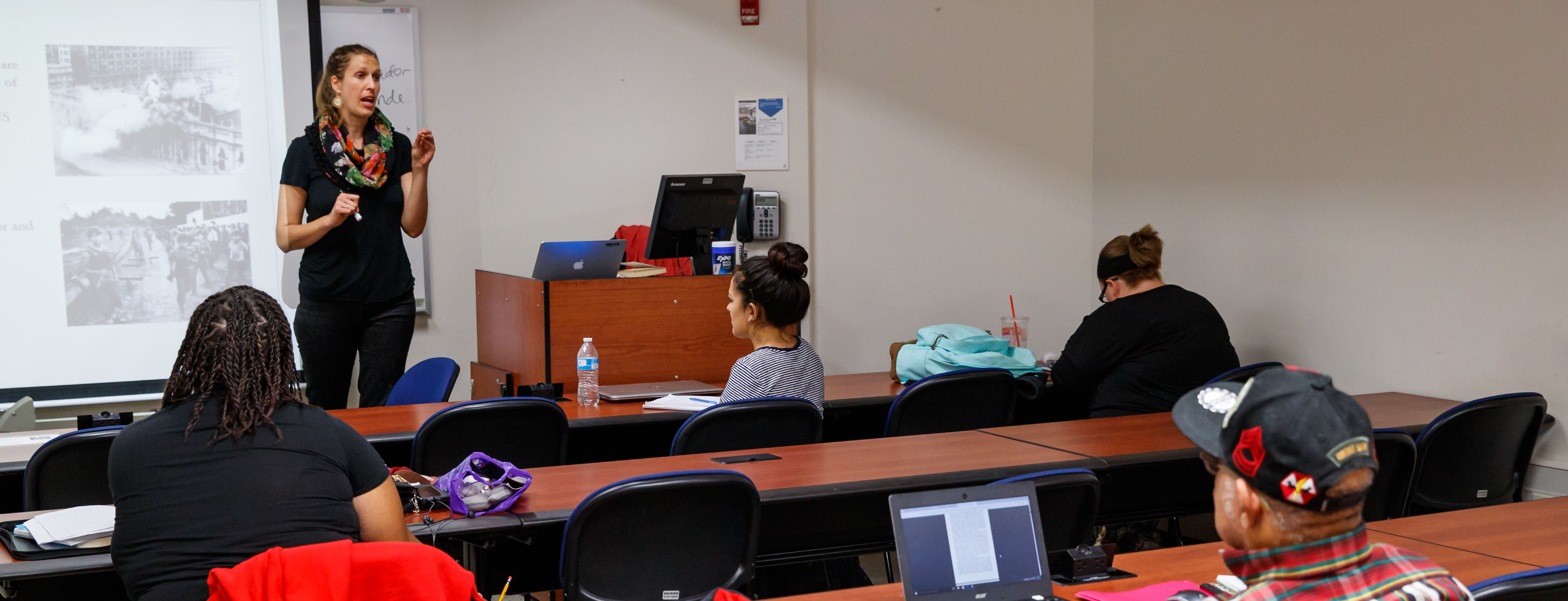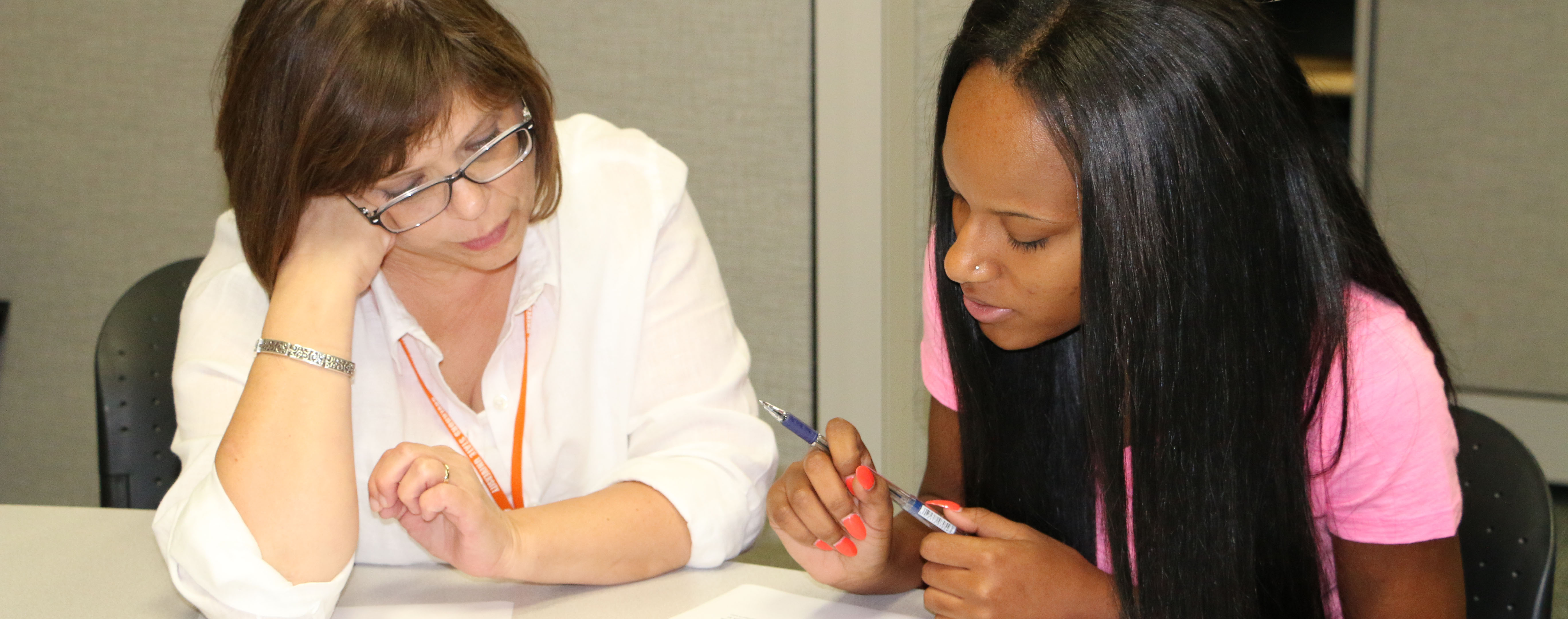Mission Statement of The Writing Fellows Program
GSU Writing Fellows are committed to working alongside peers, faculty, and students across disciplines in order to foster effective writing practices in the classroom. We hope to improve the understanding of writing as a continual learning process and a developed skill. Fellows are dedicated to fostering an environment of open communication between students and faculty in order that the process of becoming betters writers becomes a collaborative effort. Fellows are dedicated to providing support, guidance, and encouragement to students and faculty in writing intensive courses by developing classroom- and discipline-specific programs such as writing workshops, peer revisions, and individual tutoring sessions.
Meeting Students Where They Are
What is WAC?
Writing Across the Curriculum grows out of the belief that learning to write is an ongoing experience, deeply rooted in context, and nurtured by frequent practice, revision, and reflection. It takes a entire curriculum to build strong writers.

Writing to Learn
Writing helps us to understand and is, thus, a cognitive activity. Because of this quality, teachers can use writing in their classrooms to help students master course material. Writing to learn is typically a low-stakes writing assignment, sometimes composed during class, with goals to help students reflect on reading material, to articulate questions, to make informal arguments, or to compose early drafts of their ideas. These assignments are most productive when they allow for experimentation and eliminate students' fears about being graded on correctness. In addition to helping students master course knowledge, these assignments can reveal to teachers the progress their students are making.
Writing in the Disciplines
Writing is among the most complex of cognitive tasks. It is, consequently, difficult to transfer writing ability from one situation to another. What a writer learns in one class is challenging to apply in the next class, or even in the next assignment. This challenge is one reason writing needs to be taught across the curriculum and integrated into majors and programs, or what we call the "vertical curriculum."
In addition, because it is so situation dependent, it is impossible to define "good" writing in specific ways. Instead, writers learn what good writing is and how to produce it when they more fully understand the rhetorical context within which it is written and will be eventually read.
Emphasizing writing in appropriate disciplinary courses, intentionally teaching students about the genres and values of the discipline, and scaffolding assignments address both aspects of writing in the disciplines.

Writing Fellows Program
Teaching writing is hard work, and it is time consuming. The Writing Fellows Program is an embedded peer tutoring approach that aims to support students in a particular instructor's course. The program trains Fellows, both undergraduate and graduate students from English and other disciplines, to work with professors in order to support students' writing. Fellows attend classes, meet with instructors, and meet with students one-to-one and in small groups. They excel at helping students with revision, reading drafts and providing students with feedback about how to better achieve the assignment's goals. They also conduct in-class and out-of-class workshops, crafting material and activities to meet the specific goals of the course in consultation with instructors.
Those who are interested in having a Fellow should contact Dr.Kerri Morris. Please provide the name of the course, the number of students in the course, and the meeting times of the course. If possible, provide an example of a syllabus and/or assignment that demonstrates how revision is already being employed in the class. Courses designated as writing intensive have priority.

Consultations
As director of WAC, Dr. Morris is also available for individual or small group consultations with colleagues to discuss how revision can be incorporated into the classroom, how writing to learn can support disciplinary learning, and how programs can integrate writing throughout the curriculum.